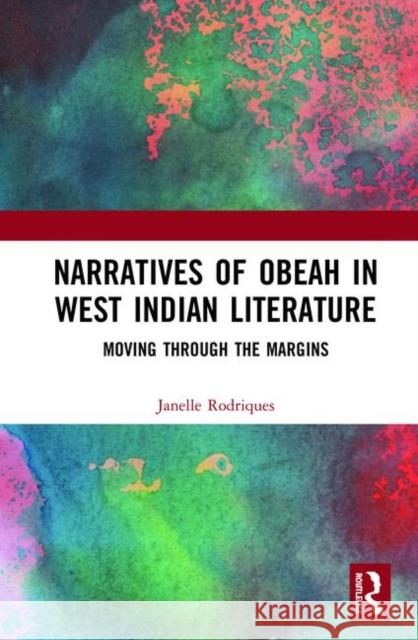Narratives of Obeah in West Indian Literature: Moving through the Margins » książka
Narratives of Obeah in West Indian Literature: Moving through the Margins
ISBN-13: 9781138585812 / Angielski / Twarda / 2019 / 240 str.
Narratives of Obeah in West Indian Literature: Moving through the Margins
ISBN-13: 9781138585812 / Angielski / Twarda / 2019 / 240 str.
(netto: 720,05 VAT: 5%)
Najniższa cena z 30 dni: 654,86
ok. 16-18 dni roboczych.
Darmowa dostawa!
This scholarly monograph is the first literary critical history to focus on representations of Obeah, a name used in the English/Creole-speaking Caribbean to describe various African-inspired, syncretic Caribbean religious practices, across a range of prose fictions published in the twentieth century. This book demonstrates that Obeah, while understudied as a literary trope, has long been central to Caribbean literary production, and thus to the imagination of Caribbean culture(s). The author argues that Obeah has played, and continues to play, an important role in the articulation of West Indian literary and cultural identity and functions, in the texts under analysis, as a symbol of resistance to colonial ideology and a marker of the Afro- "folk" aesthetics that are now constitutive of West Indian literary and cultural production. Obeah's relationship to power has the potential to undermine the imagined coherence of creole cultural nationalism, which is evident in its presentation as an "unruly" narrative subject. Focusing on moments at which narratives slip and fray, and the dispossessed and undocumented can potentially be reimagined as subjects outside of established (dominant) categories of personhood, this book will be of interest to scholars of Caribbean literature, African and Caribbean religious studies, and more widely to scholars of the Black Atlantic, and postcolonial studies.











